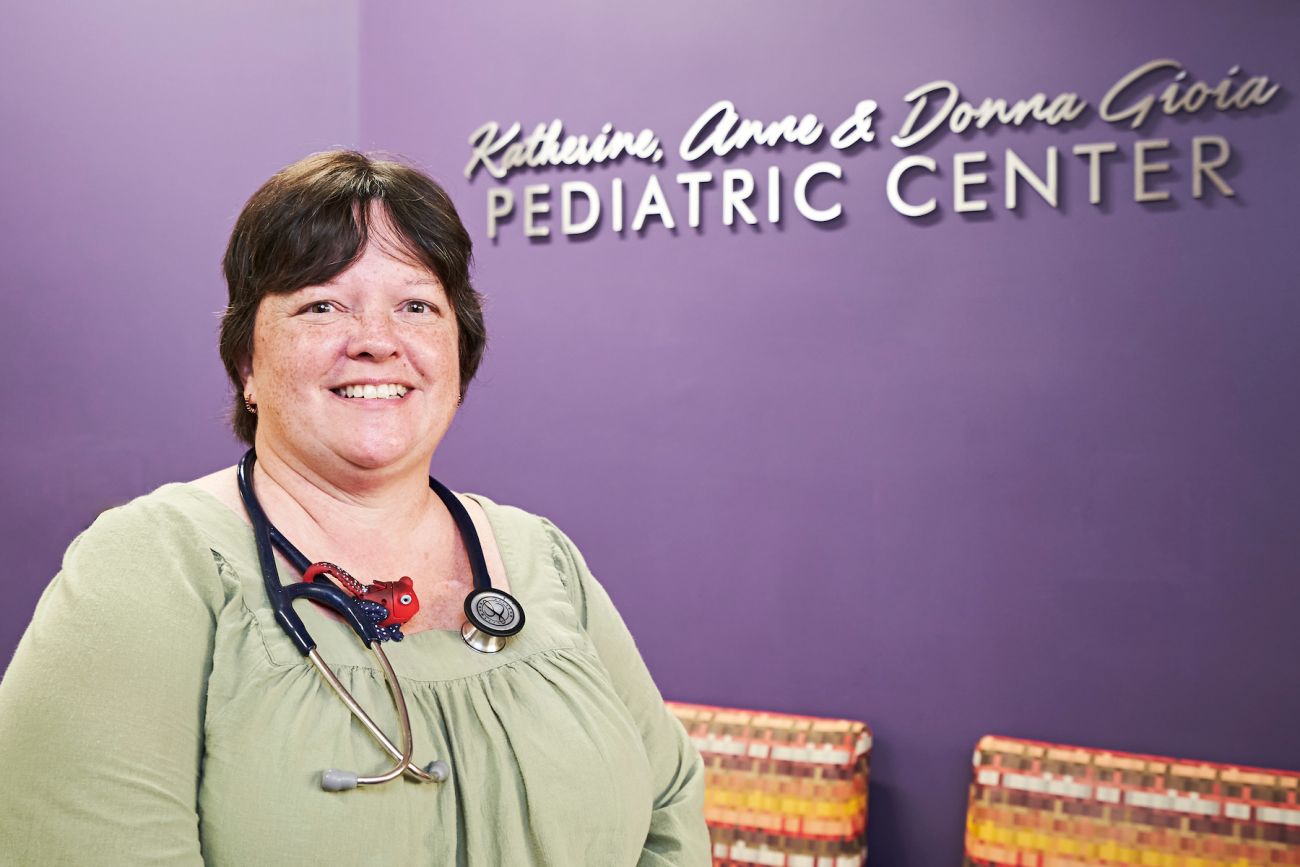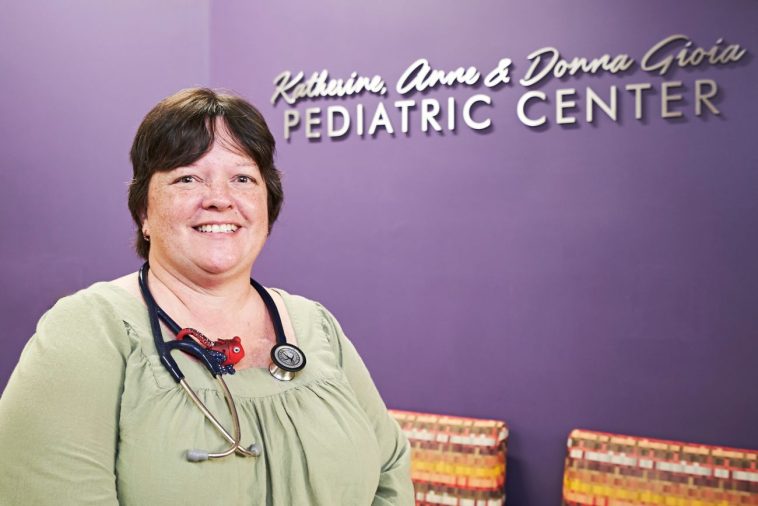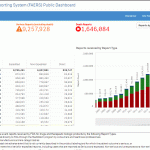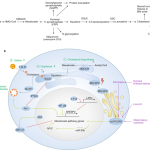
A New Chapter of Pediatric Stem Cell Transplant Excellence
The recent designation of Roswell Park Comprehensive Cancer Center’s Pediatric Stem Cell Transplant Program as an Optum Center of Excellence marks a significant turning point in the field of pediatric cancer care. This recognition, bestowed after a rigorous evaluation process by Optum’s Clinical Sciences Institute, is a testament to the program’s commitment to patient-centered care, advanced technological applications, and the effective collaboration between various healthcare institutions. In this opinion editorial, we take a closer look at what this recognition means for patients, families, and the broader community while highlighting the key elements that drive this success.
For families facing the intimidating twists and turns of pediatric cancer treatment, the program offers a beacon of hope. With comprehensive services that range from inpatient care at Oishei Children’s Hospital to outpatient services through Roswell Park, the initiative not only provides innovative cellular therapy but also ensures that the often confusing and complicated pieces of cancer care are broken down into manageable, well-supported steps.
Understanding the Collaborative Model Behind Excellence
At the heart of this accolade lies a dynamic and robust collaborative model. The joint effort between Roswell Park and Oishei Children’s Hospital exemplifies how combined expertise can yield superior clinical outcomes. By pooling resources, specialized knowledge, and state-of-the-art technology, the program is uniquely positioned to care for a wide spectrum of pediatric patients—from infants up to young adults in their mid-twenties.
This integrated approach underscores the program’s commitment to making sure that every patient receives timely, accessible, and finely tuned treatment. With the collaborative model, families no longer need to steer through a convoluted healthcare maze on their own. Instead, a team of specialists takes the wheel, managing every step of the journey from diagnosis to post-transplant care.
Key Benefits of the Collaborative Approach
- Expertise Sharing: Combining the skills and insights of specialists from different institutions fosters an environment of innovative care and comprehensive treatment planning.
- Streamlined Communication: Close coordination between doctors, nurses, and support staff ensures that every aspect of the patient’s journey is well monitored and efficiently executed.
- Accessible Advanced Care: Bringing together outpatient and inpatient services in a single, coordinated model means that the family’s logistical challenges are minimized, and advanced care is delivered seamlessly.
- Holistic Support: Integration of supportive care services, including psychological, nutritional, and rehabilitative therapies, further improves the overall patient and family experience.
Through these benefits, the program not only addresses the medical issues but also tends to the emotional and psychological needs of patients, steering families through what is often a nerve-racking period in their lives.
The Evaluation Process: Digging into the Fine Points
Achieving an Optum Center of Excellence designation is not a mere formality—it is an acknowledgment of a series of stringent benchmarks that the program had to meet. This process involved an extensive review where clinical expertise, patient outcomes, and overall quality of care were meticulously evaluated. In layman’s terms, every fine point and little detail of the program’s operations was put under a microscope, and only after satisfying these demanding criteria was the designation granted.
Components of the Evaluation Process
| Component | Description |
|---|---|
| Clinical Expertise | An assessment of the skills, training, and experience of the medical team involved in pediatric stem cell transplantation. |
| Patient Outcomes | Careful review of survival rates, complication rates, and overall success metrics post-transplant. |
| Quality of Care | Evaluation of patient-centered practices, safety protocols, and care continuity. |
| Innovation in Treatment | Examination of how the latest advances in cellular therapy and supportive medicine are integrated into treatment plans. |
| Collaborative Efficiency | Review of the interdisciplinary approach and coordination between inpatient and outpatient care providers. |
This table illustrates that the accreditation is not just about having a good program on paper—it is about consistently delivering high-quality care and continuously adapting to the ever-evolving challenges of medical treatment. The evaluation process examines the hidden bits of care delivery that together contribute to an overall picture of excellence.
Patient-Centered Care: Meeting the Needs of Young Cancer Patients
When we talk about pediatric cancer care, we are referring to an arena loaded with problems, not only medically but emotionally for families as well. The patient-centered approach undertaken by Roswell Park’s pediatric transplant program is designed to address every subtle detail of a patient’s journey. Rather than merely treating a disease, the program focuses on the complete experience—from diagnosis through treatment, and finally, to long-term survivorship.
For many families, receiving a cancer diagnosis in a child or young adult is a nerve-racking ordeal filled with confusing bits and overwhelming decisions. With multiple specialists working together, the program aims to demystify the process, offering clear guidance and expert support at every stage.
How Patient-Centered Care Is Delivered
- Personalized Treatment Plans: Each patient receives a custom-tailored treatment plan that considers their specific clinical picture and personal circumstances.
- Comprehensive Support Services: In addition to medical treatment, families have access to psychological support, nutritional counseling, and rehabilitation services.
- Family Involvement: Recognizing that family plays a key role in recovery, the program provides dedicated resources to help loved ones cope with the many twists and turns of the treatment process.
- Clear Communication: Regular updates and detailed consultations help families interpret complex treatment details, making them comfortable with every decision being made.
The aim is to lessen the intimidating aspects of treatment so that families can focus on recovery and quality of life rather than being overwhelmed by a barrage of ‘tricky parts’ inherent in medical language and procedures.
Advancing Cellular Therapies and Innovation in Cancer Treatment
One of the most compelling aspects of this recognized pediatric program is its focus on cellular therapies, a field that is rapidly transforming how we approach cancer treatment. By integrating innovative techniques into everyday practice, the center not only treats the immediate condition but also lends hope for long-term remission and improved quality of life.
Cellular therapy plays a crucial role in modern cancer treatment, especially for blood cancers such as leukemia and lymphoma, as well as other rarer cancers. The program’s approach combines conventional treatment with the latest advancements in transplant techniques, specifically refined for pediatric care. In doing so, it offers new pathways for treating cancers that were once thought to be too complicated to manage.
Highlights of Cellular Therapy Innovation
- State-of-the-Art Procedures: Utilization of the latest stem cell transplantation techniques ensures precise and effective treatment.
- Customized Cellular Therapy: Therapies are tailored to match each patient’s unique genetic and clinical profile, aiming for the best possible outcomes.
- Integrated Research and Clinical Application: Continuous research efforts inform clinical practices, allowing for rapid incorporation of innovative treatments into the program.
- Focus on Long-Term Recovery: The advancements in cellular therapies contribute significantly to improved long-term survival rates and quality of life.
These innovations are not only a technical marvel but also a source of reassurance for families navigating the nerve-racking decisions surrounding cancer treatment. With the integration of breakthrough therapies, patients benefit from procedures that offer deeper cure potentials and fewer long-term complications.
Resolving the Challenges of Pediatric Cancer Care
The world of pediatric cancer care is full of problems when it comes to managing both the medical and emotional aspects of treatment. From the first confusing bits of diagnosis to the many complicated pieces involved in treatment, families often find themselves up against a series of tough choices and intimidating procedures. However, the excellence displayed by the pediatric stem cell transplant program demonstrates how a well-organized, multidisciplinary approach can help figure a path through these challenges.
One of the most significant challenges in pediatric care is the need to address the holistic well-being of both patients and their families. This means not only seeking clinical cures but also reducing the emotional and psychological burdens attached to the treatment process. By offering robust support mechanisms and clear channels of communication, Roswell Park is setting a new benchmark for what truly patient-centered pediatric care should resemble.
Key Challenges in Pediatric Cancer Care
- Emotional Stress: The journey from diagnosis to treatment can be intimidating and overwhelming for both patients and families.
- Complex Treatment Pathways: The process involves numerous specialists, treatment phases, and often experimental therapies that require patients to make sense of a host of little details at once.
- Financial and Logistical Barriers: Coordinating care between multiple institutions and handling the associated costs can be nerve-racking for families.
- Educational Gaps: Families sometimes struggle to understand medical terminology and treatment implications, leaving them feeling confused and off-put.
Each of these challenges demands a tailored approach, with the pediatric program working hard to ensure that no patient or family feels lost or unsupported along the way. By providing clear roadmaps and step-by-step guidance, the program transforms the treatment experience into one that feels manageable and hopeful.
Adult Versus Pediatric Cancer Care: A Comparative Glimpse
While pediatric care brings its unique set of considerations, it is useful to contrast it with adult cancer care. This comparison not only highlights the specialized nature of pediatric treatment but also underlines the importance of an integrated care model that serves all age groups effectively. In fact, Roswell Park’s achievements in both pediatric and adult cancer treatment underscore a broader commitment to comprehensive, high-quality care.
The adult stem cell transplant program at Roswell Park was similarly recognized as an Optum Center of Excellence after reporting an impressive 100% six-month survival rate for patients undergoing allogenic hematopoietic cell transplantation. Although challenges in adult care may differ from those in pediatric settings, many of the principles—such as the integration of innovative therapies, strong multidisciplinary coordination, and personalized patient care—remain consistent throughout.
Comparison of Pediatric and Adult Programs
| Aspect | Pediatric Program | Adult Program |
|---|---|---|
| Age Range | Infants to young adults (up to 25 years) | Typically 18 years and older |
| Treatment Complexity | Carefully tailored for developmental needs; high emphasis on psychological and familial support | Focus on managing comorbidities and long-term complications |
| Multidisciplinary Approach | Integration of pediatric specialists with child-friendly care methodologies | Involvement of a broader range of specialists aimed at managing adult-specific conditions |
| Innovative Techniques | Cutting-edge cellular therapies, innovative transplantation methods | Adoption of advanced methodologies in transplantation with strict monitoring of survival outcomes |
This comparison not only accentuates the strengths of the pediatric program but also positions Roswell Park as a leader in employing best practices across the entire spectrum of cancer care. By learning from each other, the adult and pediatric programs provide a model of excellence that could well serve as a roadmap for other centers throughout the nation.
Future Directions: Setting the Pace for Comprehensive Cancer Centers
The journey ahead for institutions like Roswell Park is filled with opportunities. The current achievements in pediatric and adult stem cell transplantation initiate a dialogue on the future trajectory of cancer care in the modern age. With emerging technologies, better data analytics, and improved collaborative platforms, comprehensive cancer centers can further crystallize the fine points of patient-centered care.
In the next few years, we expect to see more integration of digital tools and artificial intelligence to help make your way through both the complicated bits of medical data and the small distinctions in patient profiles. The hope is that such technological advancements will empower healthcare providers to offer even more personalized and predictive treatment options.
Anticipated Trends in Cancer Care
- Integration of AI and Big Data: Advanced algorithms and data analysis can help fine-tune treatment plans to match each patient’s unique genetic makeup, ensuring more precise therapies and reducing the guesswork associated with treatment decisions.
- Expansion of Telemedicine: Especially valuable for areas where access to specialized care may be limited, telemedicine can bridge gaps and offer prompt consultations while allowing families to take a closer look at the management of their care from the comfort of their homes.
- Enhanced Patient Portals and Digital Communication: Digital platforms will become even more critical in helping families manage appointments, access medical records, and communicate with the care team in real time.
- Increased Focus on Survivorship Programs: As more patients overcome cancer, programs dedicated to long-term follow-up care and quality of life improvement will be super important in ensuring that survivors thrive in their post-treatment lives.
These anticipated trends not only underscore the ongoing evolution of cancer care but also highlight the need for centers like Roswell Park to continuously innovate. With a strong foundation in both clinical excellence and compassionate care, future advancements are expected to further demystify the many tricky parts of cancer treatment, making the whole process less intimidating for patients and families alike.
The Critical Role of Communication and Community Engagement
Amidst all the technological progress and medical breakthroughs, one factor remains essential: clear and empathetic communication. For families facing a childhood or young adult cancer diagnosis, understanding the little twists and turns in the treatment process can be nerve-racking. Roswell Park’s efforts extend beyond the realm of clinical success—they also involve robust community outreach initiatives that educate and empower patients and their loved ones.
Effective communication helps reduce the tension that comes with complex medical decisions. From detailed informational brochures and patient newsletters to interactive support groups and educational seminars, the center ensures that families are kept well-informed every step of the way. When families understand both the clinical and emotional aspects of care, they can better figure a path through the sometimes overwhelming landscape of treatment.
Effective Communication Strategies
- Multilingual Resources: Offering content in multiple languages ensures that diverse patient populations have equal access to essential information.
- Interactive Platforms: Whether it’s through mobile apps or virtual visits, digital tools allow families to stay connected with healthcare providers and clarify confusing bits on demand.
- Patient and Family Advisory Councils: Regular feedback sessions help healthcare professionals understand the subtle details of patient needs, thereby fine-tuning services and care strategies.
- Community Outreach Programs: Local events and awareness initiatives offer education on prevention, screening, and survivorship, reinforcing that cancer care is not just about treatment but also about long-term wellness.
These strategies are crucial for turning the often overwhelming maze of cancer care into an accessible, approachable experience. Through partnerships with local organizations and sustained community engagement, Roswell Park empowers families to actively participate in their healthcare journey.
A Broader Perspective on Cancer Care in Modern Society
This recognition of excellence in pediatric transplant services is more than just a win for one center—it is a beacon for a transformative era in cancer care. Far from being a niche achievement, it demonstrates that with the right blend of innovation, collaboration, and unwavering commitment to patient welfare, even the most intimidating facets of modern medicine can be conquered.
In today’s health landscape, challenges are many, and the path is often filled with tricky parts and tangled issues. However, every success such as this offers valuable lessons for healthcare institutions everywhere. By leaning into innovation, actively engaging communities, and continuously refining treatment models, centers like Roswell Park are setting new standards that are destined to influence the broader approach to cancer treatment in the coming years.
Key Takeaways for the Future of Cancer Treatment
- Multi-Institutional Collaboration: The power of partnerships cannot be overstated. Combining the strengths of various healthcare institutions creates a safety net that benefits patients on multiple levels.
- Patient Empowerment: When patients and families are well-informed, they can make confident decisions, reducing the scary and overwhelming elements of treatment.
- Embracing Innovation: Continuous improvements in technology and treatment protocols pave the way for ever better outcomes, regardless of the patient’s age.
- Commitment to Comprehensive Care: It is not enough to simply treat the disease. True excellence in cancer care means addressing the emotional, physical, and logistical aspects of the patient journey, ensuring a smooth and supportive transition through every phase of treatment.
The trends in healthcare today are clear: the future lies in openness, collaboration, and the embracement of innovative treatment modalities. These principles, woven into the fabric of Roswell Park’s care programs, provide a strong foundation for a future where cancer is met with a coordinated, compassionate, and highly effective response. As we continue to observe the evolution of cancer care, we are reminded of the importance of tackling every little twist with diligence and a commitment to quality.
Community Impact: Extending Hope Beyond the Clinic
The prestige of being recognized as an Optum Center of Excellence carries with it a powerful message of hope and trust for the local community and beyond. In regions like Buffalo Niagara, where families grapple with the nerve-racking realities of cancer, the positive impact of having a dedicated pediatric transplant program cannot be understated. The presence of such a program reassures the community that top-tier, compassionate care is readily available.
Local family groups and community organizations have expressed strong support for the initiative. The collaborative nature of the program ensures that patients receive not only clinical care but also community-based services that address the emotional and social aspects of their journey. From direct access to expert consultations to family support services and community education programs, the overall approach is holistic and inclusive.
Benefits to the Community
- Enhanced Access to Care: Both inpatient and outpatient services are streamlined, reducing the need for patients to travel long distances for specialized care.
- Educational Outreach: Regular community events and seminars help demystify treatment options, making the seemingly intimidating world of cancer care more accessible to everyone.
- Support Networks: Involvement of local support groups and advisory councils ensures that families feel connected and supported at every step of their journey.
- Economic Benefits: By attracting top medical talent and research initiatives, the program contributes to local economic growth and job creation in the healthcare sector.
The community benefits from a model of care that values transparency, meticulous attention to every small twist of treatment details, and an unwavering commitment to improving patient outcomes. Such a model becomes a blueprint for other regions looking to replicate the success of integrated and patient-focused healthcare.
Conclusion: A Model for the Future of Pediatric Cancer Care
In reflecting on the recognition received by Roswell Park Comprehensive Cancer Center’s Pediatric Stem Cell Transplant Program, it becomes clear that this is not merely an isolated achievement but a landmark event that heralds a new era in cancer care. The integration of advanced cellular therapies, the exceptional collaborative model, and a relentless focus on patient-centered services offer a powerful blueprint for managing the many tricky parts and tangled issues inherent in modern pediatric cancer treatment.
By breaking down the intimidating and overwhelming elements of the treatment process, the program helps families understand each step of what is often a nerve-racking journey. It demonstrates that even in the face of a challenging medical diagnosis, the combination of expert knowledge, innovative technology, and genuine compassion can create a pathway to healing and hope.
As we look toward the future, the need for centers that not only treat cancer but also care for the whole person—body, mind, and community—will become ever more super important. Roswell Park’s approach, characterized by its focus on personalized care, continuous research, and community engagement, offers a shining example of what comprehensive cancer care should look like. It is a model that other institutions would do well to follow, ensuring that every patient, regardless of age, is given the best possible chance to live a healthy, fulfilling life after cancer.
For families, survivors, and healthcare professionals alike, this recognition serves as a rallying cry to continue pushing the boundaries of what is possible in disease treatment and care. With every new innovation and every reassessed protocol, we get a little closer to demystifying cancer care, turning what was once a legacy of nerve-racking challenges into a hopeful, manageable, and ultimately conquerable fight.
Ultimately, the bright future of cancer care lies in our ability to adapt, to work together, and to relentlessly question and improve upon what is currently available. In doing so, we not only extend the reach of life-saving treatments but also nurture a generation of patients and families who believe that even the most daunting of obstacles can be overcome with the right mix of compassion, expertise, and will.
Roswell Park’s recognized excellence in pediatric stem cell transplantation is a call to action for the entire medical community—a call to take a closer look at the hidden complexities of care, to lean into innovation, and to prove that when we work together, every twist and turn along the way can lead to a breakthrough that transforms lives.
Originally Post From https://www.roswellpark.org/newsroom/202508-roswell-parks-pediatric-stem-cell-transplant-program-again-designated-optum-center
Read more about this topic at
Starzl Network: Home
Medicaid Pediatric Transplant Centers of Excellence Network


